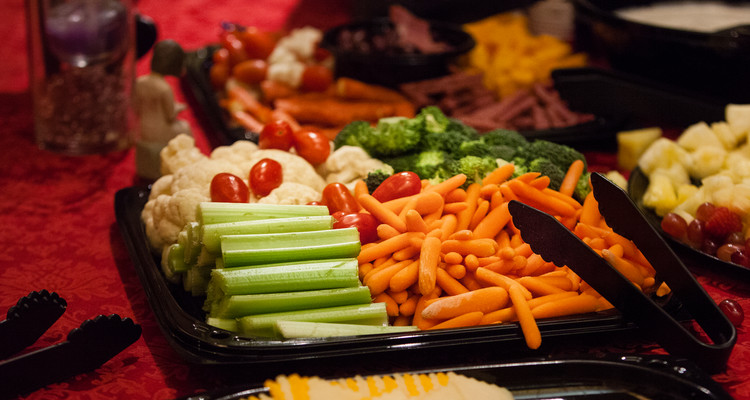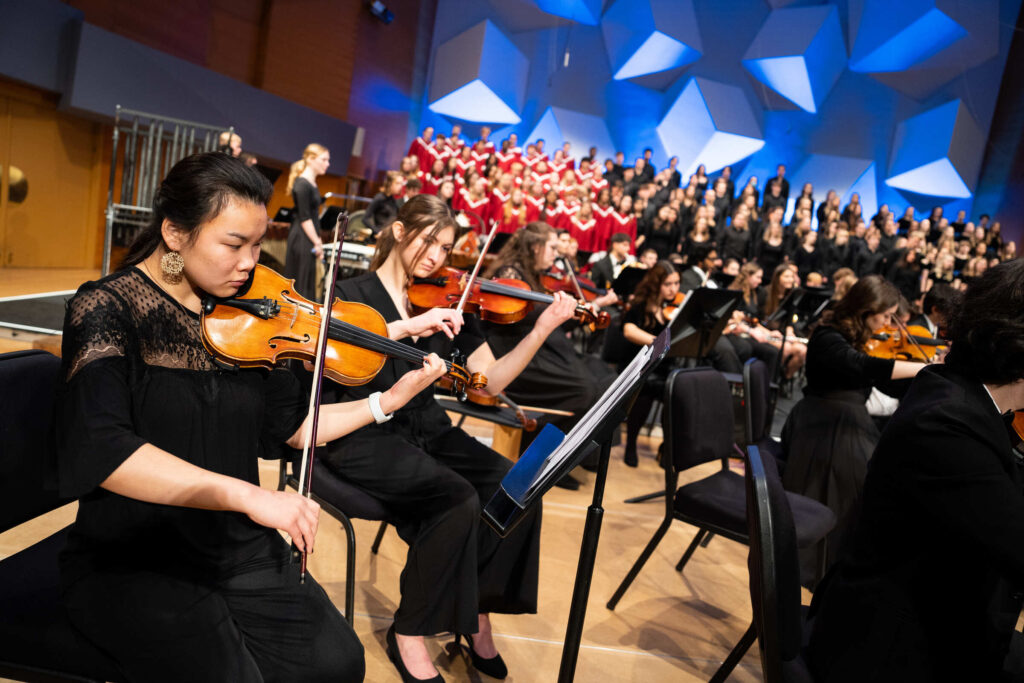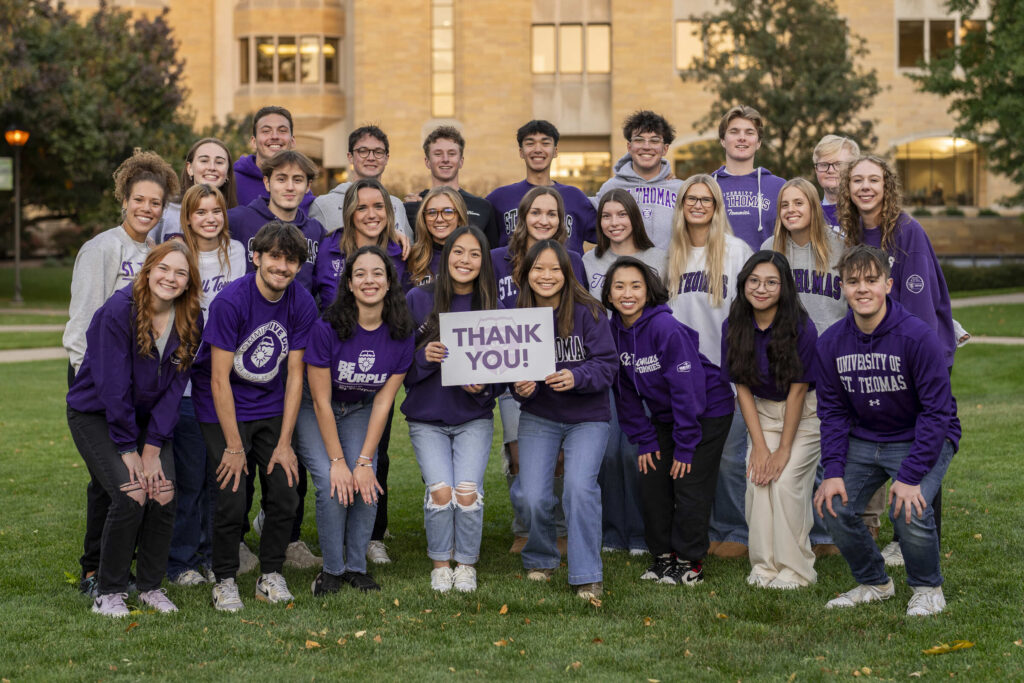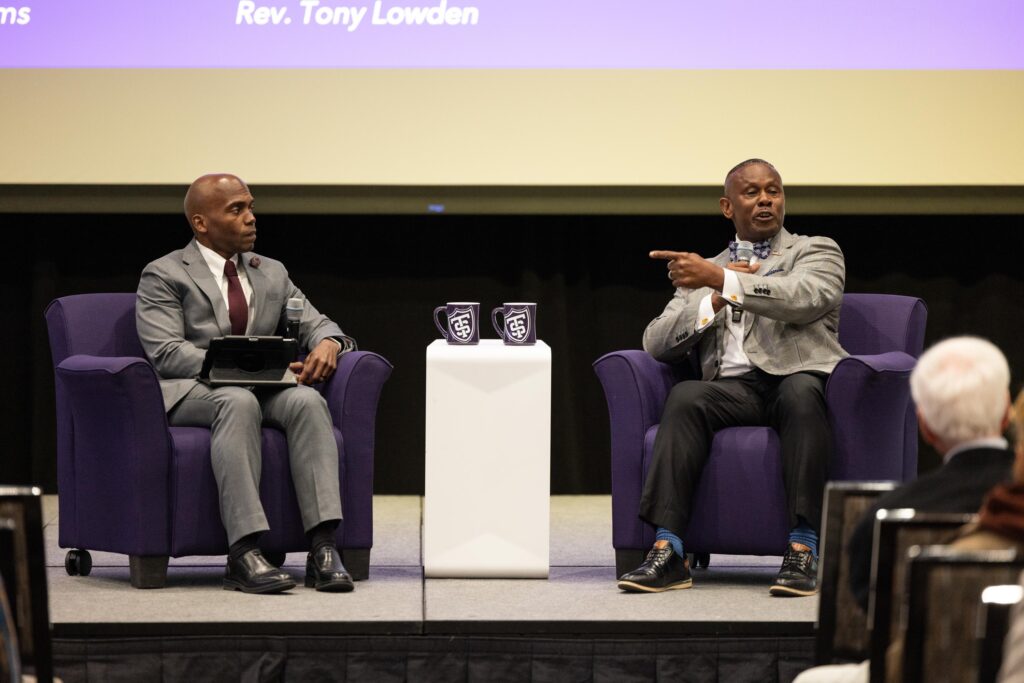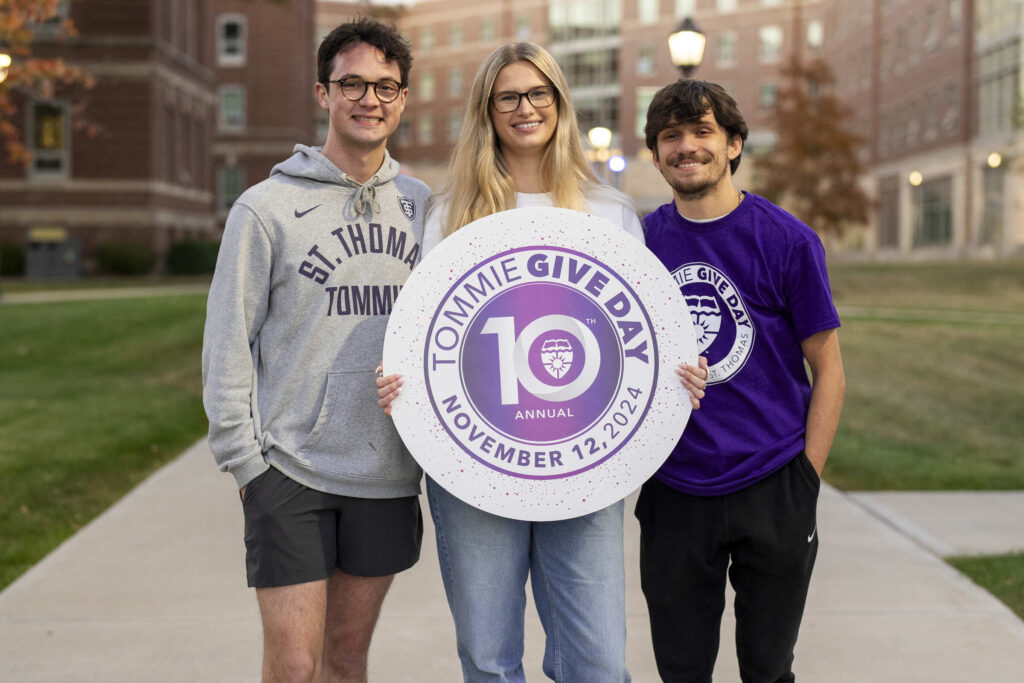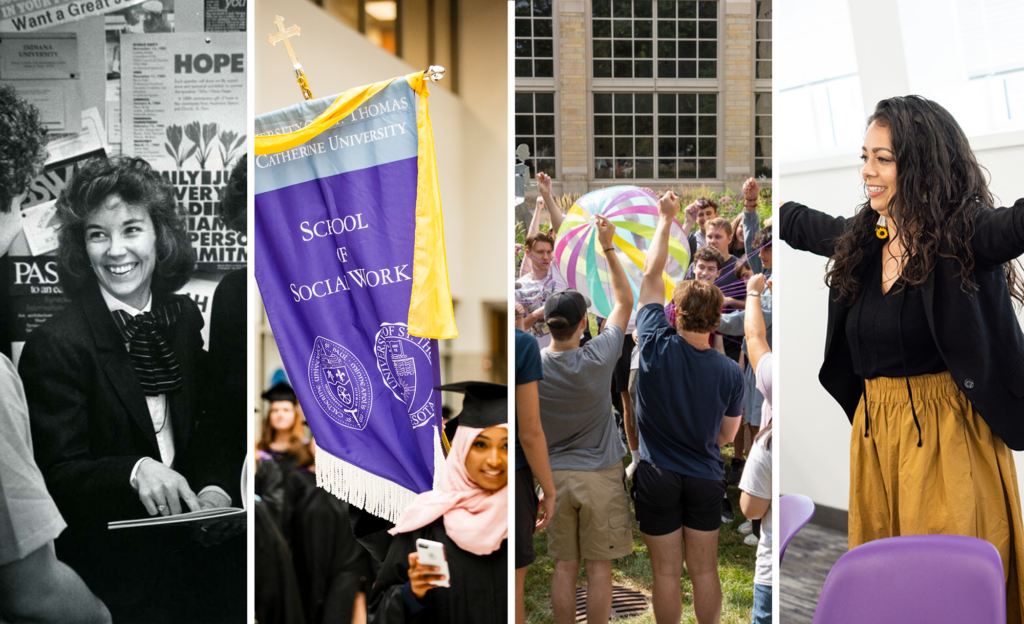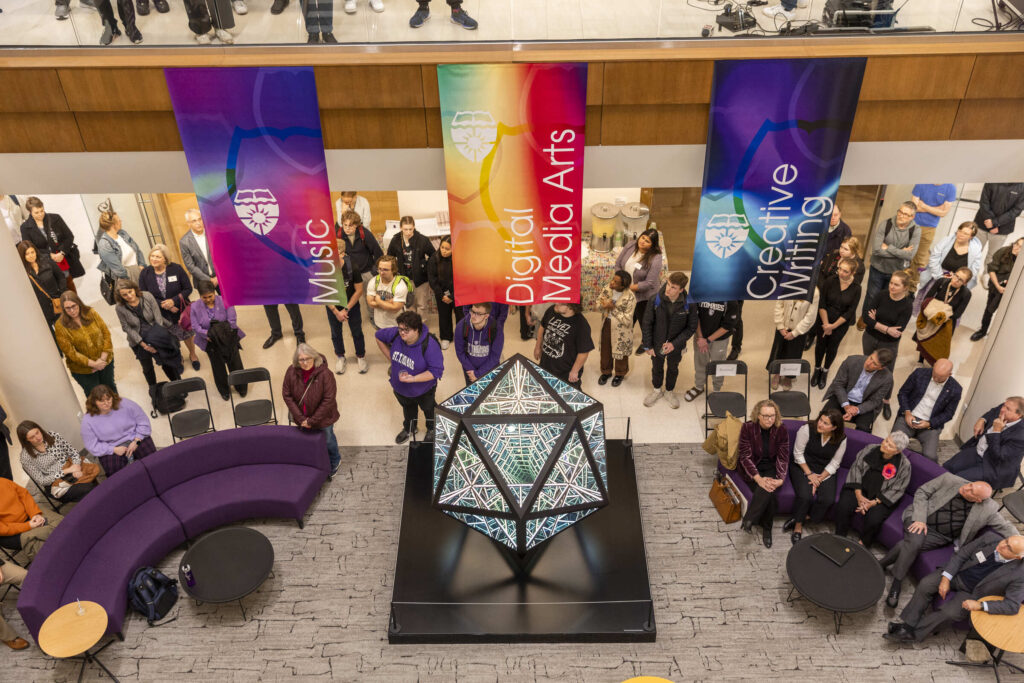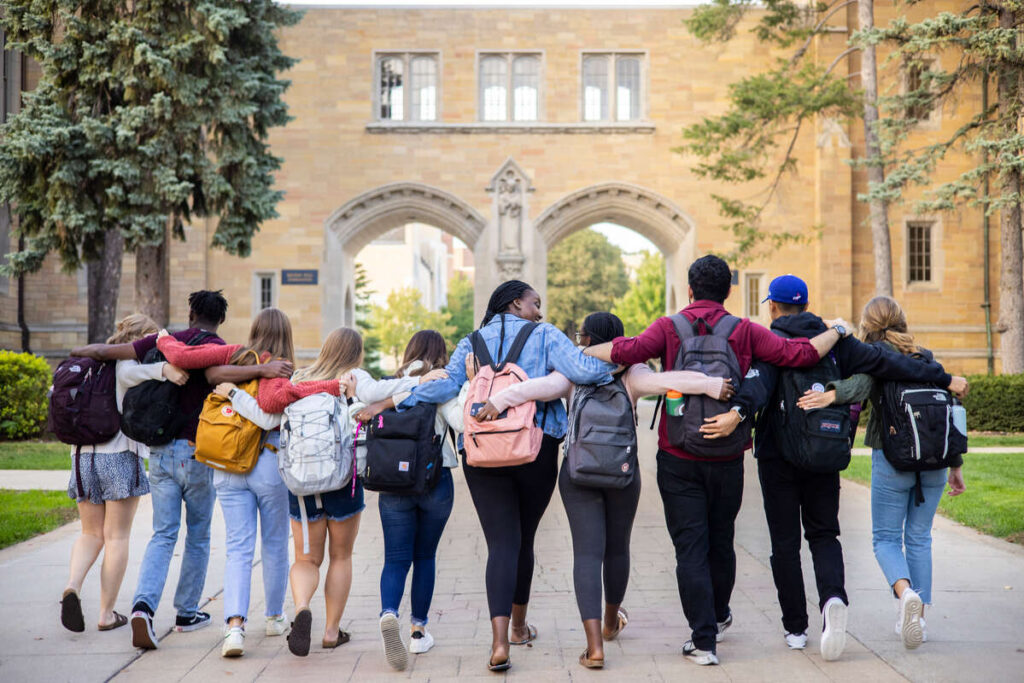Far from a college-specific problem, food waste in the United States results in billions of pounds and dollars annually going into the garbage. It's the kind of daunting scale that's often written off as insurmountable, but for graduate students Tam Kemabonta and Kiran Guntupalli, it's an area they're looking to affect in their everyday world at St. Thomas.
Last year Kemabonta, an electrical engineering student, and Guntupalli, a computer science student, began developing a digital platform, Taedoof, which will allow users to post food that will potentially be wasted for other users to claim. Whether it's milk nearing its expiration date or leftovers from a club meeting, users can pull up the app on their smartphones to see what their fellow students are trying to avoid wasting.
"Addressing this problem just came about of being a student here. It wasn't a plan, something I wanted to do with my life. I see a lot of food being wasted, and it feels like students here are not food insecure, but that's not true," Kemabonta said.
Kemabonta and Guntupalli's efforts have landed them – along with four other groups of St. Thomas students – in the Clinton Global Initiative University (CGIU), which provides a global network of people and resources to support social innovation. (The pair applied in the spring semester and were accepted this summer.)
"It's a huge foundation, and the fact that you can be a part of that some way in the world and have a network of people that can help you is an important thing. It's amazing, actually," Kemabonta said.

St. Thomas students pose for a photo at the Clinton Global Initiative University.
Other St. Thomas projects selected for the CGIU include:
- Julia Zappa, an undergraduate education major with a language training program;
- Emily Pucuhuayla Canchan, an undergraduate business major with a Peruvian artisan business venture;
- Nicole Herrli, Patrick Brennan and Autumn Heiderscheit, all undergraduates in biochemistry and biology, with Brightside Produce initiative;
- And Melissa Serafin, a psychology graduate student selected for her culturally-appropriate mental health training program for providers.
The St. Thomas students attended the 10th annual CGIU meeting in Boston Oct. 13-15, a three-day opportunity to network, attend working sessions and hear from speakers such as former President Bill Clinton, Congressman Joe Kennedy and Be The Change CEO Alan Khazei.
"This is all about giving students the option to make good on their ideas. Now. Right now," said Cynthia Sarver, assistant director of St. Thomas' Social Innovation Collaboratory.
"It's not just educating for the future so they can solve problems when they're out of school. Right now, you can do it, and within the context of your education," added Adam Kay, director of the Social Innovation Collaboratory.
Ideas and follow-through like Kemabonta and Guntupalli's – and their fellow CGIU members – are strong examples of the kind of changemaking St. Thomas' designation as an Ashoka Changemaker Campus is designed to support. Thirteen groups applied to the CGIU from St. Thomas this year, building on entries from each of the past two years.
"That kind of scratches the surface of what's out there in terms of students getting into the habit of thinking about, 'What is burning you? What would you like to see change? What is it that's burning people in the community?'" Kay said. "You want to just wait for a new government policy? What about you? You have classmates, professors, staff here to support you. Why don't you address it? Once we get people recognizing their burns and feeling empowered to address it, we're going to have a huge impact."
Find out more about the Social Innovation Collaboratory here.
